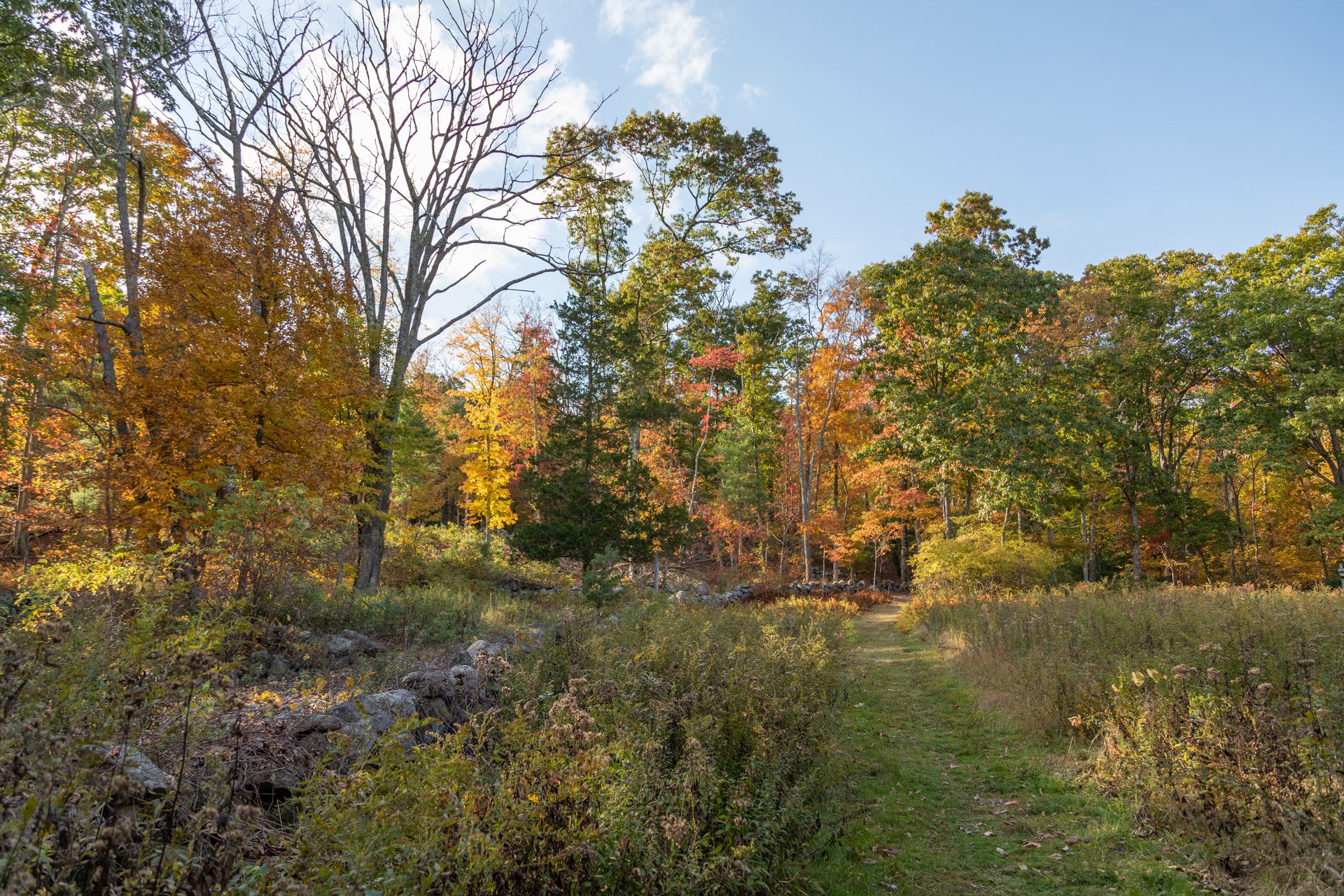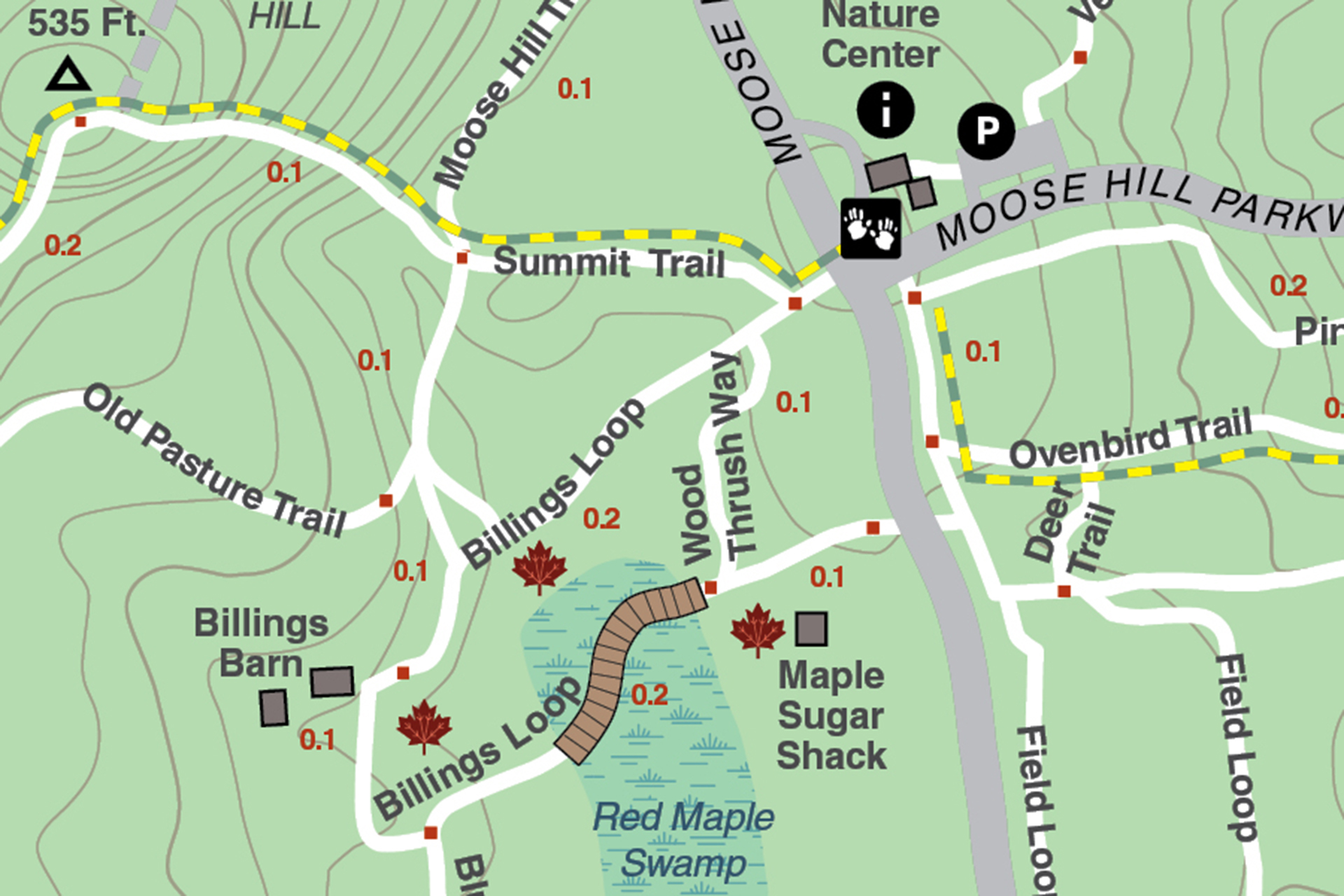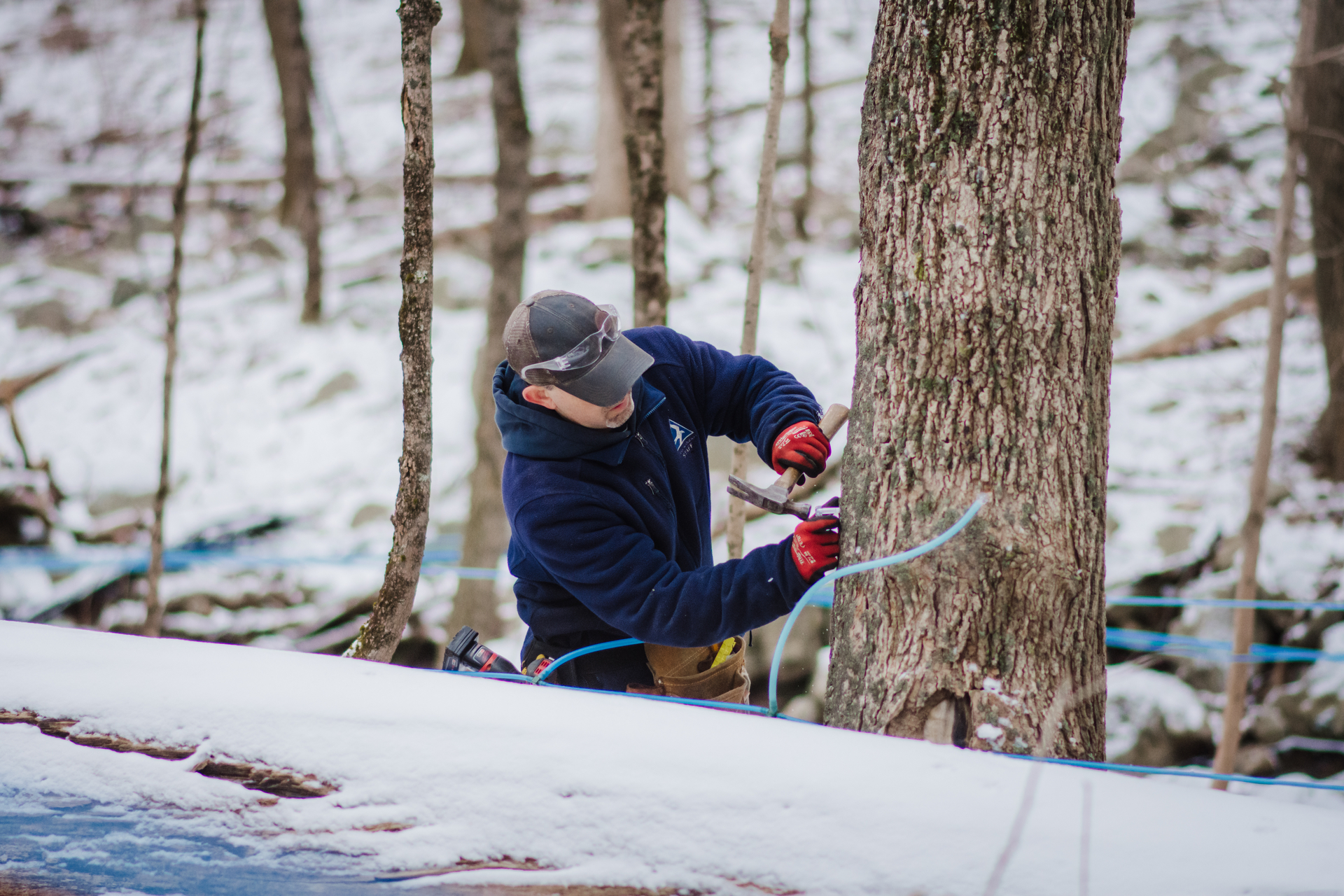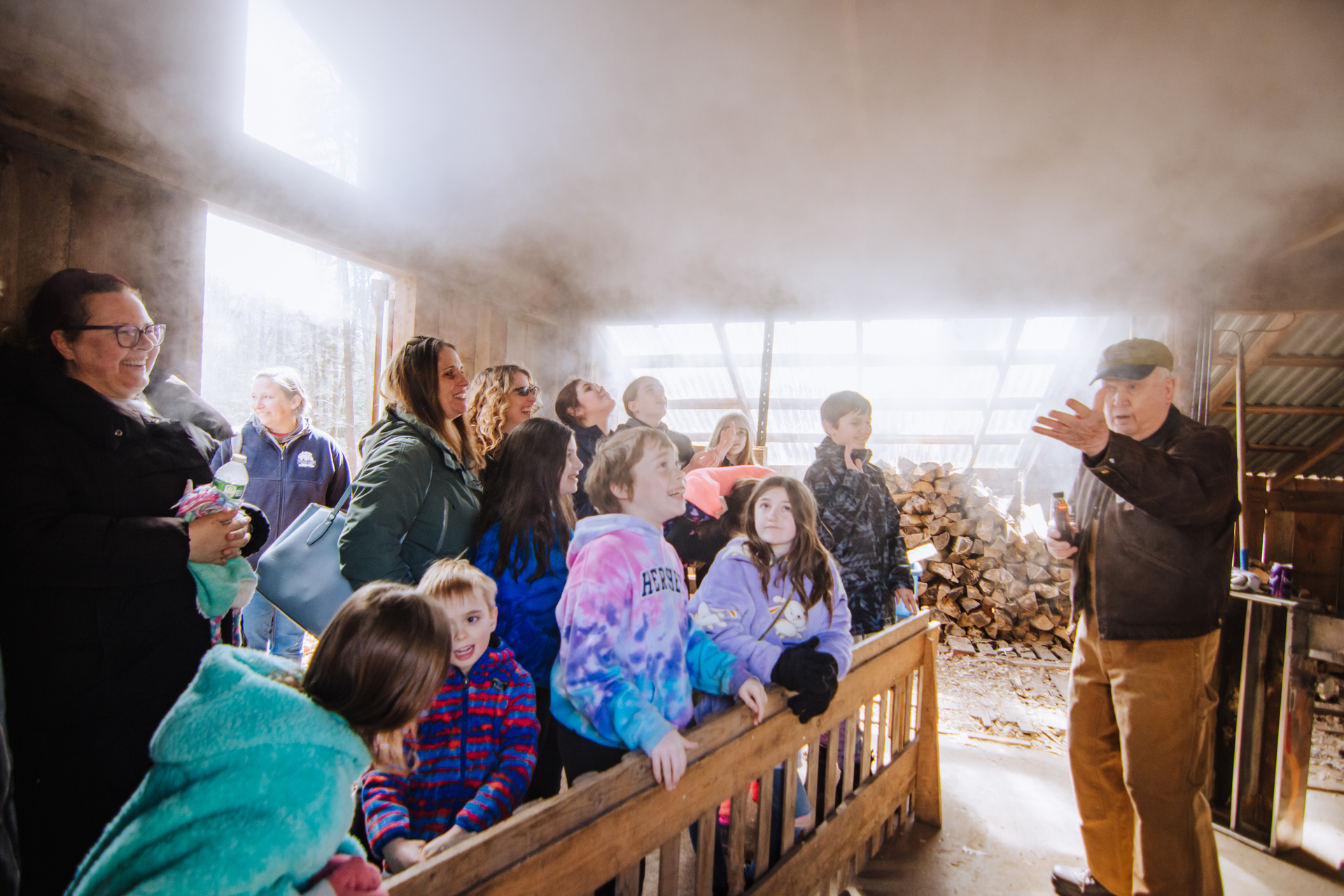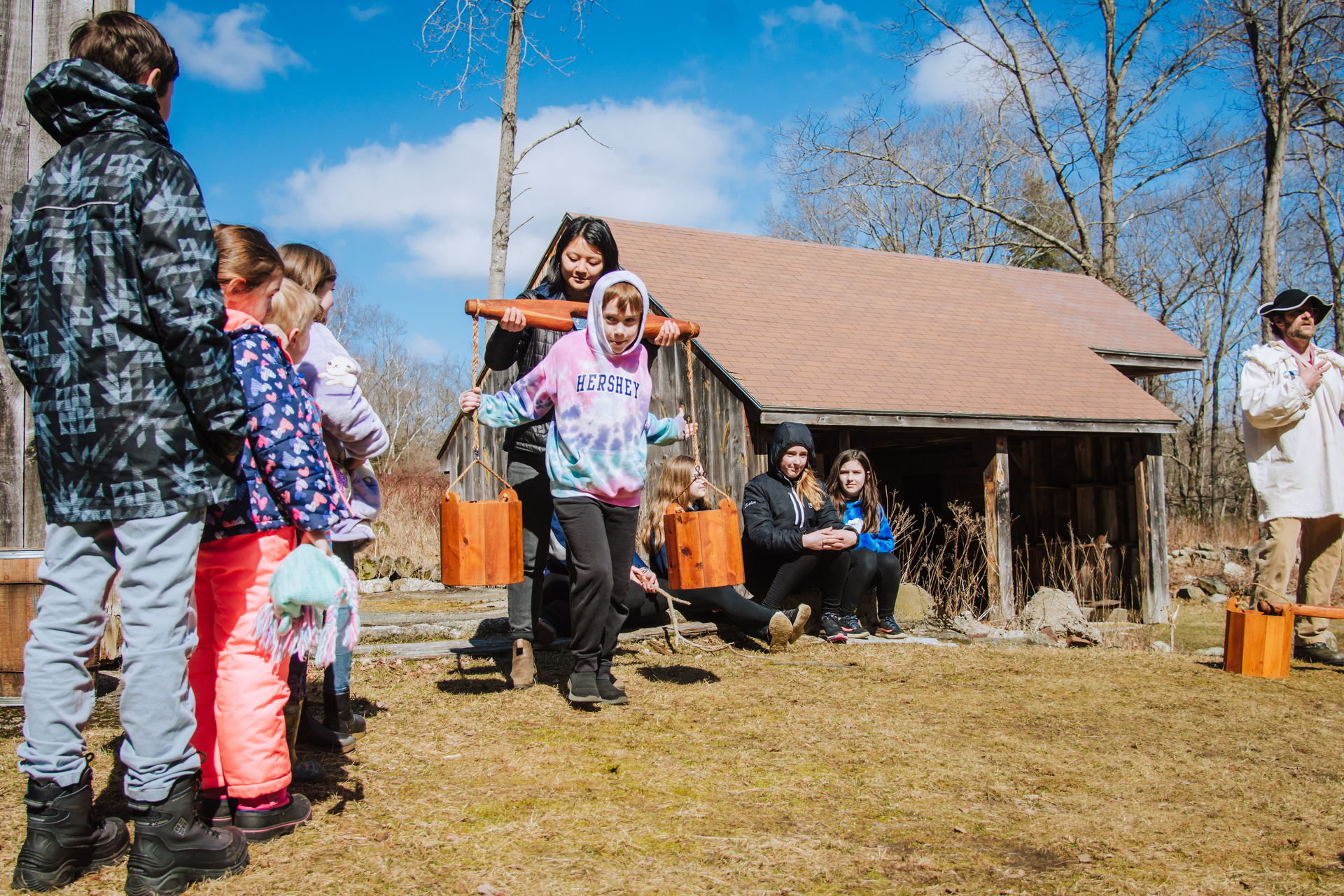How Moose Hill Turns Sap into Maple Syrup
February 22, 2024
Visit Moose Hill in late winter and early spring and there’s a good chance you will hear the drip drops of running sap and see the buckets adorning trees along the Billings Loop or up to the Bluffs. You may also notice blue lines that look like a web running through the trees, see the steam coming out of the Sugar Shack that’s just beyond the boardwalk of the Billings Loop, or smell the sweetness in the air as the water is boiled out of the sap.
These sights and sounds signal one thing: maple sugaring season! Every year since 1972, dedicated staff and volunteers tap trees in the sanctuary’s two main sugarbushes. Among those trees sit George and Martha, 250-year-old sugar maples.
The Evolution of Maple Sugaring at Moose Hill
The task of collecting sap and turning it into syrup has expanded quite a bit from its humble beginnings over 50 years ago. In 2020, Moose Hill transitioned from the traditional tap and buckets to a more efficient tubing method.
There were initially five lateral lines of blue tubing with about 20 taps per line, which flowed down to a low spot in the sugarbush into a 780-gallon holding tank. From there, it is brought to the Sugar Shack for processing in the evaporator. In 2024, we now have 12 lines with 240 taps on top of the 45 taps that still use the traditional bucket method.
Switching over to tubing allowed the tapping of additional trees that were otherwise inaccessible. It also yields almost twice the amount of sap per tap than the traditional bucket method. Tubing is a "closed" system, meaning very little outside air infiltrates the point of contact between the spout and the tree resulting in a lesser buildup of microorganisms. Buildup causes the tree to stop the flow of sap prematurely. Without the buildup, the same tap can produce sap for eight weeks or more (three weeks longer than that of the bucket method). Also, because the tubing system runs downhill the slope creates a natural vacuum effect within the tubing, thus yielding more sap per tap.
The People Behind the Magic
Moose Hill has a dedicated group of volunteers, including Hans Ludwald, Bob Greaves, and David Rice, who have all been a part of the sugaring operation for a decade or two. In total, we have eight core volunteers who regularly help our staff with almost every aspect of the sugaring process throughout the season. Thanks to this team, we can produce large quanties of syrup and open the shack up to our visitors.
How to Experience Maple Sugaring
Beginning in January, Moose Hill runs several maple sugaring programs, including opportunities to tap your own tree and weekend festivals where you can learn about our entire process from sap to syrup.
During this time, if you’re walking along the Billings Loop look for the flag to see if the Sugar Shack is open. When staff and volunteers are boiling sap, you can pop in and see the process. Then be sure to visit our gift shop at the nature center to buy a bottle of our very own syrup.



